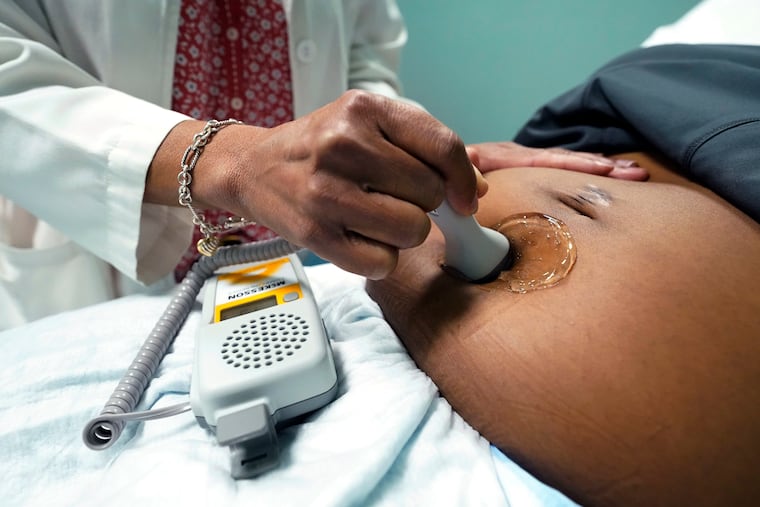Black Maternal Health Week is a time for reflection and joy
We envision a future where parents impacted by racial and social inequities in Southeastern Pennsylvania can give birth with dignity.

When I was 18 years old, in my last semester of high school, I had an unplanned pregnancy. Scared and with nowhere to go, I quickly learned what it meant to be Black, young, unwed, and pregnant. After five stressful months, my pregnancy ended in a stillbirth. I felt fear, shame, and loneliness.
The doctors did not explain anything to me. They insisted I could not have anyone in the room while I “passed” the fetus, and offered no comfort for my loss. I was invisible to them. That was over 40 years ago, and, unfortunately, the systems of oppression that led to how I experienced my pregnancy and stillbirth have not changed much today.
What has changed is a growing movement within Black families to demand reproductive justice and to own our birth journeys. The path to justice is paved with truth and solidarity. And in the pursuit of justice, we can find and choose joy.
Black Maternal Health Week, this year celebrated from April 11 to 17, is a national campaign founded and led by the Black Mamas Matter Alliance to build awareness, activism, and community. The annual campaign amplifies the voices, perspectives, and lived experiences of Black mamas and birthing people.
I find joy as I see Black parents acting with autonomy, building community, and speaking their truth as part of this movement. Increased awareness of doula support, the recently extended postpartum Medicaid coverage, and the growing advocacy for legislation that will address the maternal health crisis are all encouraging. Healthy moms, caregivers, and stable families are key to a child’s optimal health and well-being. This kind of support would have been life-changing for me as a teenager.
The inequitable conditions Black families are faced with are not new, and they persist. In 1955, my mother was forced to choose between driving 100 miles to the nearest integrated hospital in Alabama or staying closer to home and delivering my sister in a nearby doctor’s office. In the end, she stayed close to home and delivered my oldest sister on an exam table, rested for a couple of hours on a waiting room sofa, and then went home.
Inequitable maternal, child, and infant health outcomes are the result of purposefully designed racist systems of inequities that sit at the root of persistent higher maternal mortality and morbidity rates among Black birthing people. The health of families is significantly affected by our lack of access to affordable housing, nutritious food, high-quality childcare, and a living wage. These social determinants of health transcend race; however, they have a greater impact on Black families and families living in poverty.
And yet, despite this reality of injustice, we choose joy. We believe parents are agents of change in their own lives and communities. When Black parents are given choices, listened to, respected, and actively participate in defining their own birth experience, we get much closer to a just world.
I am proud to be part of an organization that, through advocacy, research, and direct services, shines a light on the path forward, and provides resources that can improve the health and well-being of pregnant women and parenting families. I am grateful for the opportunity to lead and learn from our families and staff, and I am hopeful that our team at Maternity Care Coalition is part of a groundswell that will bring sustained joy and parental autonomy to all Black families.
Join us as we celebrate this Black Maternal Health Week and envision a future where parents impacted by racial and social inequities in Southeastern Pennsylvania can give birth with dignity, parent with autonomy, and raise babies who are healthy, growing, and thriving.
Marianne Fray is the chief executive officer of Maternity Care Coalition, which serves parents and families impacted by racial and social inequities in Southeastern Pennsylvania. @maternitycarecoalition